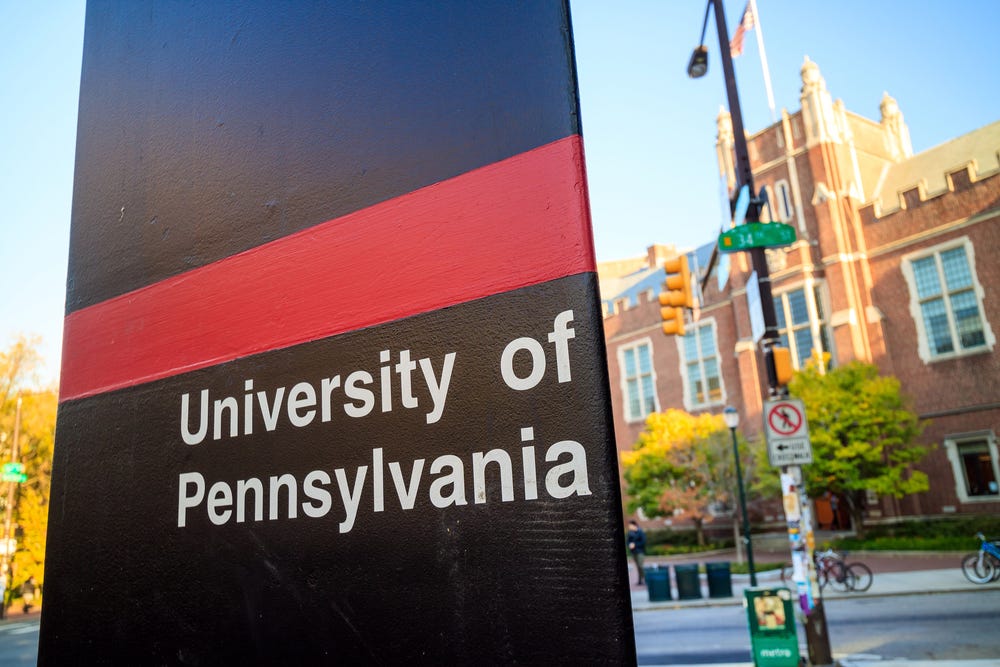E-Pluribus | January 21, 2022
Illiberalism on the right, academic freedom at the University of Pennsylvania, and keeping politics out of public health.
A round up of the latest and best writing and musings on the rise of illiberalism in the public discourse:
Jonathan Rauch and Peter Wehner: What’s Happening on the Left Is No Excuse for What’s Happening on the Right
One of the responses to excesses on the right in recent years has been, “We didn’t make the rules!” Writing at the New York Times, Jonathan Rauch and Peter Wehner contend that this kind of tit-for-tat thinking is leading the right down the path to illiberalism and authoritarianism even as its accuses the left of the same.
The progressive movement, then, is increasingly under the sway of a totalistic, unfalsifiable and revolutionary ideology that rejects fundamental liberal values like pluralism and free inquiry. And conservatives aren’t hallucinating about its influence. Surveys show that 62 percent of Americans and 68 percent of college students are reluctant to share their true political views for fear of negative social consequences. A Cato Institute study found that nearly a third of Americans — across the political spectrum, not just on the right — say they’re worried about losing a job or job opportunities if they express their true political views. Another study suggested that the level of self-censorship in America may be three times what it was during the McCarthy era.
The left is not solely responsible for creating these fears, but it has played the most significant role. Yet even granting all that, the threat from the illiberal right is more immediate and more dangerous. If that wasn’t clear before the last presidential election and the violent attack on the U.S. Capitol on Jan. 6, 2021, it should be clear now.
Any account of the malignancy of the American right has to begin with Mr. Trump, whose twisted sensibilities continue to define the Republican Party. It was he who attempted what no president had ever tried: overturning an election. He based his effort on a huge campaign of disinformation. Mr. Trump pressured the vice president, governors, secretaries of state, election officials and appointees at the Department of Justice to join him in his efforts. One of his lawyers reportedly proposed a plan to nullify the election. Congress’s Jan. 6 committee will reveal more and possibly worse.
[…]
Partly as a result, the MAGA movement is drifting toward authoritarianism. The most important media personality on the right, Tucker Carlson of Fox News, released a disingenuous three-part documentary in November suggesting that the Jan. 6 insurrection was a “false flag” operation. He and others in MAGA World, including Mr. Trump, also promote Hungary, which Freedom House said in its 2018 report is “sliding into authoritarian rule,” as a model for the United States. The Republican Party is also drifting ever closer to the open embrace of political violence and martyrdom, not merely excusing but defending actions like Ashli Babbitt’s effort to break into the House’s inner sanctum on Jan. 6 — actions that came within seconds of succeeding.
Read the whole thing.
Keith E. Whittington: Academic Freedom Alliance Letter to the University of Pennsylvania
While some may have little sympathy for University of Pennsylvania professor Amy Wax for her statements on immigration, Keith Whittington and the Academic Freedom Alliance contend that the importance of academic freedom trumps distaste over political beliefs.
This past weekend, the Academic Freedom Alliance wrote to the leadership of the University of Pennsylvania urging it to resist bending its established rules so as to punish Wax for her personal political opinions expressed in constitutionally protected speech. I wrote in the letter:
This call for the university to take formal action against Professor Wax is a clear threat to her freedom of speech. Such a public interview is a form of what the American Association of University Professors calls "extramural speech." Extramural speech is a protected form of freedom of expression. When professors "speak or write as citizens, they should be free from institutional censorship or discipline." As the AAUP has emphasized, "The controlling principle is that a faculty member's expression of opinion as a citizen cannot constitute grounds for dismissal unless it clearly demonstrates the faculty member's unfitness for the position." The University of Pennsylvania has explicitly embraced those principles in Article 11 of the Statutes of the Trustees.
You can read the whole thing here.
As is often the case, defending academic freedom principles sometimes means defending the right of speakers to say things with which I strongly disagree. That is certainly the case here. But if universities were to bow to the pressure of politicians and discipline professors for expressing unpopular political views in their personal capacity and carve out exceptions from academic freedom protections for speech someone might find hateful, then professors across the political spectrum will be much more vulnerable to university discipline and termination. I have no confidence that such a reduced version of academic freedom protections would not be leveraged by university officials to get rid of controversial professors whenever the heat gets turned up sufficiently by politicians, students, or activists. The Foundation for Individual Rights in Education emphasizes that broader context in its statement on the Wax situation.
Read it all here.
Vinay Prasad: Public Health’s Truth Problem
While keeping politics out of public health will always be a pie-in-the-sky proposition, an ongoing global pandemic would have been an ideal time for public health officials to cut the spin and shoot straight. However, as Vinay Prasad writes at City Journal, the track record so far has been one of omissions, overstatements, and misinformation, and the damage to the credibility of these institutions is likely to last long after the pandemic peters out.
Throughout the pandemic, public-health officials have omitted uncomfortable truths, made misleading statements, and advanced demonstrably false assertions. In the information era, where what one says is easily accessible and anyone may read primary literature, these falsehoods will be increasingly recognized and severely damage the field’s credibility. No doubt, officials and organizations promulgating them had a range of motivations—including honorable ones, such as wanting to encourage salutary choices. Yet the subsequent loss of institutional trust may result in harm that far outweighs any short-term policy objectives.
[…]
Falsehoods and half-truths have consequences. Publishing flawed science to raise irrational fear, making false statements about the efficacy of treatments, and extrapolating data from one vaccine to another all constitute bad scientific practice. In normal times, scientists would not tolerate such behavior. Yet, repeatedly, federal agencies and respected organizations push recommendations that are deeply uncertain, rely on fearmongering, or provide hollow reassurances. The right answer would be to acknowledge the massive residual uncertainty surrounding these issues and embark on studies to reduce it.
Read it all.
Around Twitter
From Michael Powell of the New York Times, here’s the beginning of an 11-tweet thread on a federal court decision in a University of North Texas free speech case. Click to read the whole thing.
Via Jesse Singal and Yale professor Nicholas A. Christakis, a very long thread from University of Connecticut science professor Daniel Bolnick on a controversy involving a Scientific American article, E.O. Wilson, and the place of the political views of individual scientists. Click here for the whole thing.
And finally, via Phil Kerpen, a pictorial of one current strain of economic analysis. Click to see the whole thing.









